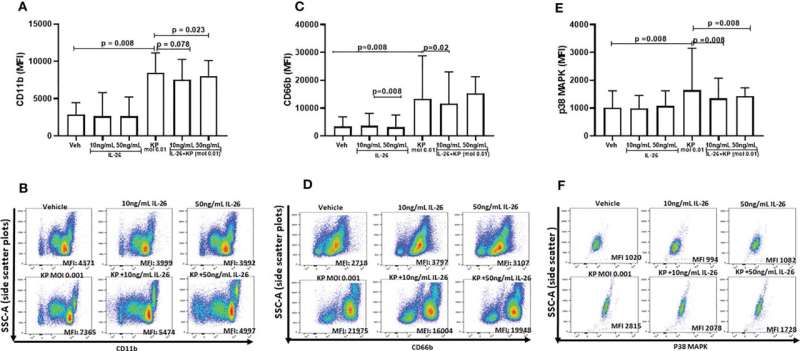Study identifies new potential drug target for pneumonia


Researchers at Karolinska Institutet in Sweden report that a recently discovered inflammatory mediator, interleukin-26, appears to have an important role in pneumonia and contributes to the killing of bacteria. The study is published in the scientific journal Frontiers in Immunology.
Bacterial lung infection affects both children and adults worldwide, and pneumonia remains a common cause of premature death in many parts of the world, with millions of people dying from it every year. To facilitate the development of more effective therapies, researchers at Karolinska Institutet are trying to characterize the immunological mechanisms involved in pneumonia.
The new study demonstrates that an inflammatory mediator called interleukin-26 (IL-26) is critically involved in bacterial pneumonia in humans. During the last decade, IL-26 has emerged as an important player in the so-called innate immune response, our first line of defense against pathogens. It is abundant in the airways of healthy humans, and bacterial exposure stimulates an increased release of IL-26 by lung cells and white blood cells.
Studying human lung tissue and airway samples from patients with bacterial pneumonia, the researchers were able to show that IL-26 exerts complex modulatory effects on the immune system and that the protein directly kills bacteria known to cause pneumonia.
Source: Read Full Article